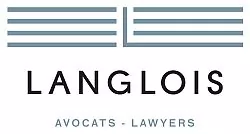We often witness misconduct in the course of labour disputes, with the union side sheltering behind freedom of expression. The Canadian Charter1 and the Quebec Charter2 both guarantee freedom of expression.
How is a dispute between arising while a collective agreement is still in effect to be managed? When the parties are governed by a collective agreement, all disputes must be resolved through the grievance and arbitration process.
What if the union decides to behave as if it were actually involved in a labour dispute over the renewal of a collective agreement? And what if, in addition, a union representative decides to aim both spoken and written personal attacks at an employer representative?
This issue was addressed in a recent decision of the Superior Court involving the Maritime Employers Association (the "MEA") and the Longshoremen's Union, C.U.P.E. Local 375 (the "Union"),3 which was argued by counsel from the Langlois Kronström Desjardins team.
The facts
In this case, a dispute arose between the MEA and the Union while a collective agreement was in effect between them.
In the fall of 2014, as part of pressure tactics, the Union and its members very pointedly attacked the Vice-President of the MEA, circulating virulent remarks about him on placards, leaflets and publications. Instead of targeting the MEA as the employer, the Union attacked an officer of the MEA personally, tarnishing his reputation in the eyes of his colleagues, his employees, his business partners and the general public.
For example, members of the Union brandished placards bearing the words [translation] "Your boat is sinking", referring to the Vice-President, or saying that the Vice-President was [translation] "jeopardizing the economy of the Port of Montreal". A truck with a rotating sign saying that the Vice-President [translation] "is jeopardizing industrial peace at the Port of Montreal out of personal ambition" drove around the streets of Montreal, sometimes near the Vice-President's workplace. In addition, in communications with its members, the Union circulated similar remarks targeting the Vice-President personally.
The Vice-President and his employer brought this matter before the court to put an end to the situation. They brought an action in damages for interference with his reputation, supported by an application for provisional, interlocutory and permanent injunctions.
The decision
On October 29, 2014, the Superior Court heard and allowed the application for a provisional injunction to put an end to the interference with the Vice-President's reputation. The Court considered each of the tests for issuing a provisional injunction—urgency, colour of right, irreparable harm and balance of convenience—before giving judgment.
In its analysis, the Court first considered the specific circumstances in the case, to decide whether the urgency test had been met. The Union was singling out and targeting a single officer of the MEA by laying all the blame for the dispute on him. It also considered the pressure being experienced by that individual, both in his workplace and at home, and the serious repercussions the interference with his reputation might have.
The Court then found that the colour of right test had been met because the fundamental rights of the MEA Vice-President to inviolability and security were threatened, but left it for the trial judge to determine whether the remarks made by the Union and its representatives were defamatory.
The irreparable harm test also favoured the MEA Vice-President, since the Union could not explain why he was being personally targeted.
The balance of convenience tilted in the MEA Vice-President's favour as well. The Court therefore found that it was appropriate to limit the Union's freedom of expression by granting the provisional injunction, thereby forbidding the Union to make defamatory remarks targeting the Vice-President personally.
Conclusion
This decision demonstrates that unions' freedom of expression is not absolute and does not mean that they may personally attack representatives of the employer.
On that point, the Court noted that [translation] "again, this is not a matter of violating the union's freedom of expression; it is a matter of preventing needless or unfair harm being done, under cover of that freedom, to the person on whom they have chosen to focus the attacks with the obvious aim of causing him personal harm."4
Footnotes
1Constitution Act, 1982, Schedule B to the Canada Act 1982 (U.K.), 1982, c. 11, s. 2(b).
2Charter of Human Rights and Freedoms, CQLR c. C-12, s. 3.
3Morency et al. v. Syndicat des débardeurs, section locale 375, S.C.F.P. et al., 2014 QCCS 5199.
4Morency et al. c. Syndicat des débardeurs, section locale 375, S.C.F.P. et al., 2014 QCCS 5199, at para. 17.
The content of this article is intended to provide a general guide to the subject matter. Specialist advice should be sought about your specific circumstances.

